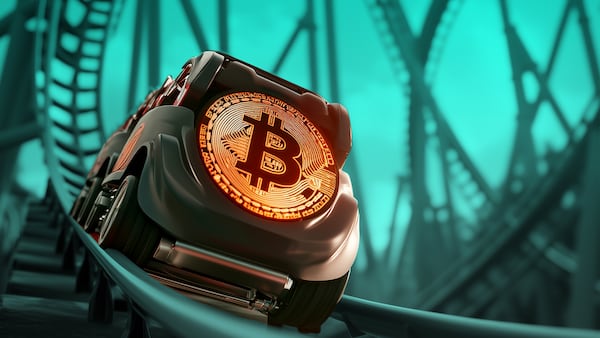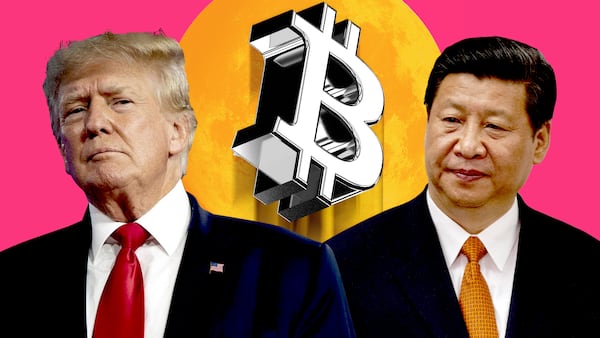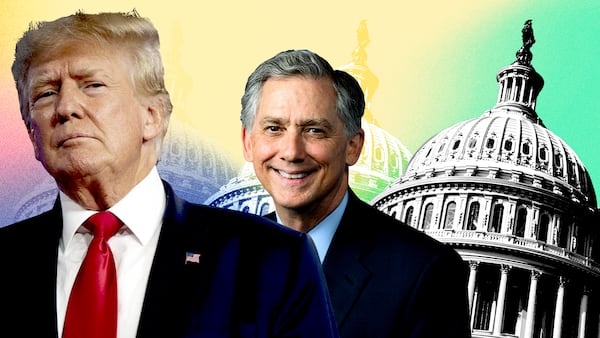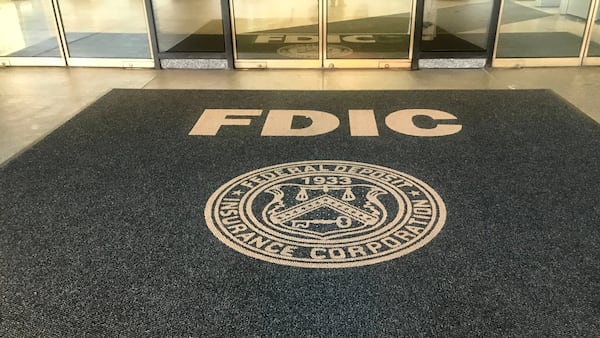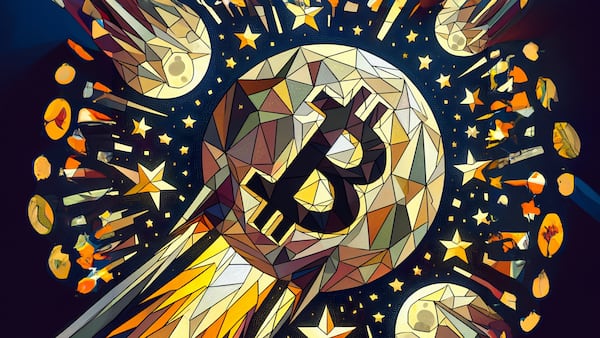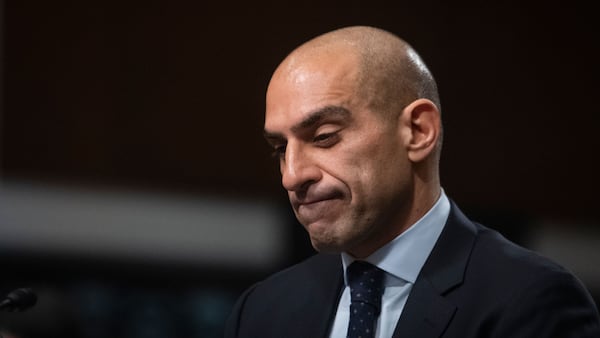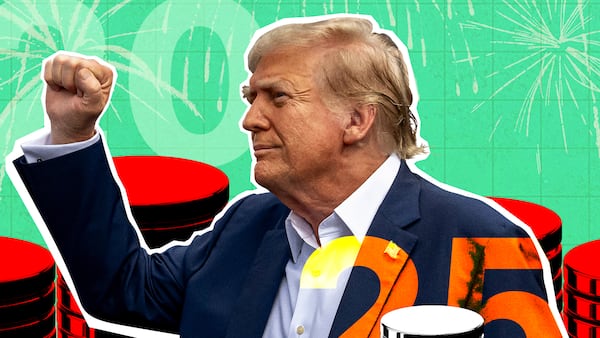- Trump’s presidency will put Bitcoin’s status as an inflation hedge to the test.
- Markets are already bracing for inflation, writes Wolfgang Münchau.
Wolfgang Münchau is a columnist for DL News. He is co-founder and director of Eurointelligence, and writes a column on European affairs for UnHerd. Opinions are his own.
The backlash has started.
The rise in global interest rates is not the work of the proverbial bond market vigilantes, but of people who have done the maths and who concluded that the Trump agenda is going to be inflationary.
I think so, too.
This is not so much a political statement as a reflection of the world we live in. The Trump coalition spans the space of fiscal conservatives, economic libertarians, and ideological right-wingers.
Trump himself is a transactions guy. He is needy. He thinks he needs Canada, Greenland and the Panama Canal. For that, and much more, he needs money. He does not need fiscal rules.
After everything he told us, about tariffs and his geopolitical views, it is totally rational for markets to conclude that this will be yet another budget-busting presidency. And when budget deficits rise, so will inflation.
Trump loves tariffs. Tariffs can be inflationary or deflationary, depending on how big they are. The tariffs the US is going to get will be of the inflationary kind, the one that raises prices, but not the one that kills off imports altogether.
I expect imminent tariffs on a few selected goods that are deemed to be critical to US security interests like rare earths and batteries. Later there may also be a blanket 10% tariff on all imports.
Smelling inflation
The funny thing about Trump is that he won the election on an anti-inflation ticket. But if inflation is the problem, then Trump is not the solution. Some of his voters might have buyers’ remorse.
The crypto industry, too, might find itself in a position where Trump cuts both ways. He and the Republican majority in Congress will be soft on regulation, and that’s great for crypto in the short run.
But it’s the macroeconomics of Trump that could end up hurting crypto investors the most, again in the short run. Both of these calculations could flip dramatically in the long run.
Along with the bond markets, the Federal Reserve, too, will respond to higher inflation, and may switch its bias from loosening towards neutral. The next movement in interest rates may well be upwards.
At the time of writing, the benchmark US 10-year Treasuries was yielding 4.7%.
Some of market participants think they will edge a little higher and stay in a range between the current levels and 5% for the rest of this year. Trump is not even in office, but the markets know what they need to know already. They are smelling inflation.
If one thinks of crypto as a hedge against inflation, as one might naively do, then clearly the Trump agenda would be massively crypto-positive in all respects.
Yet in practice it is unlikely to work out this way because a lot of crypto demand was hot money by investors who piled into Bitcoin ETFs to expose themselves to yet a risky asset class with promises of large returns.
The price of Bitcoin has already fallen by 11% from its peak in December. When inflation went up last time, the Bitcoin price tanked. This runs counter to the idea of Bitcoin as an inflation hedge.
The two views of Bitcoin and inflation are only superficially in conflict. I see this as a short-term/long-term trade off.
Inflation is very bad for crypto in the short-run, but potentially very good in the long run.
Financial stress building
Inflation will be negative for equity and some other financial markets, where valuations are beyond of what is historically justifiable.
I am not going to cry wolf on an imminent market crash — one that could ultimately take crypto down with it.
But I see financial stress building up in several overleveraged parts of classical financial sectors.
France is struggling to contain its fiscal deficits because there are no political majorities in French politics in favour of deficit cutting.
A sovereign debt crisis is not on the cards yet, but we should remember that sovereign debts markets are often prone to binary judgements. You think you don’t have a problem, and the next day you do.
For the UK, Fitch had a note out recently on the dodgy end of the mortgage sector, which is suffering from a rise in arrears. This is the interest-only end of the market, the one that is most exposed to rises in interest rates.
Some homeowners have miscalculated on their mortgages, especially those on buy-to-let schemes. It is not nearly as bad as 2007/08 when the US securitised mortgage market collapsed. But these are early warning signs of a wider financial stress.
Inflation is in general good for debt, but not when central banks start to fight it. So a lot will depend on the Federal Reserve and the European Central Bank.
As economists know fully well, it is expectations of inflation that matter more than actual inflation. The last inflation cycle from 2021 to 2023 was painful for lower income earners especially.
But most people back then expected central banks to do their job and bring inflation back down again. This would have been so much worse if inflation expectation had not been under control.
But central banks have so far not delivered on price stability. They already started to relax policy. The conclusion I draw from this is that they are not as serious about delivering low inflation as they pretend.
Crypto’s big test
Trump may even start to challenge the Fed’s independence or appoint a compliant successor to Jay Powell as chair. This is why I think the inflation period from 2025 to 2028 will be economically and politically more damaging than the last one.
For crypto, this will be a big test.
‘This is undoubtedly going to be a bumpy presidency, a bumpy ride for financial markets, and for crypto’
My long-term views about inflation are similar to those of the British monetary economist Charles Goodhart.
He sees the western world entering into a secular period of higher inflation, due to demographics and the rising cost of providing old-age care, and climate change. We can add defence and security to this list.
This is undoubtedly going to be a bumpy presidency, a bumpy ride for financial markets, and for crypto.
I see equity valuations as unsustainable, and sections of the global real estate market. The unsustainable can last for longer than one thinks, but it is generally not a good to be exposed to asset with valuations that are not sustainable.
Whether we think of crypto assets as overvalued or not, they will get caught in the maelstrom of a broader financial crisis.



